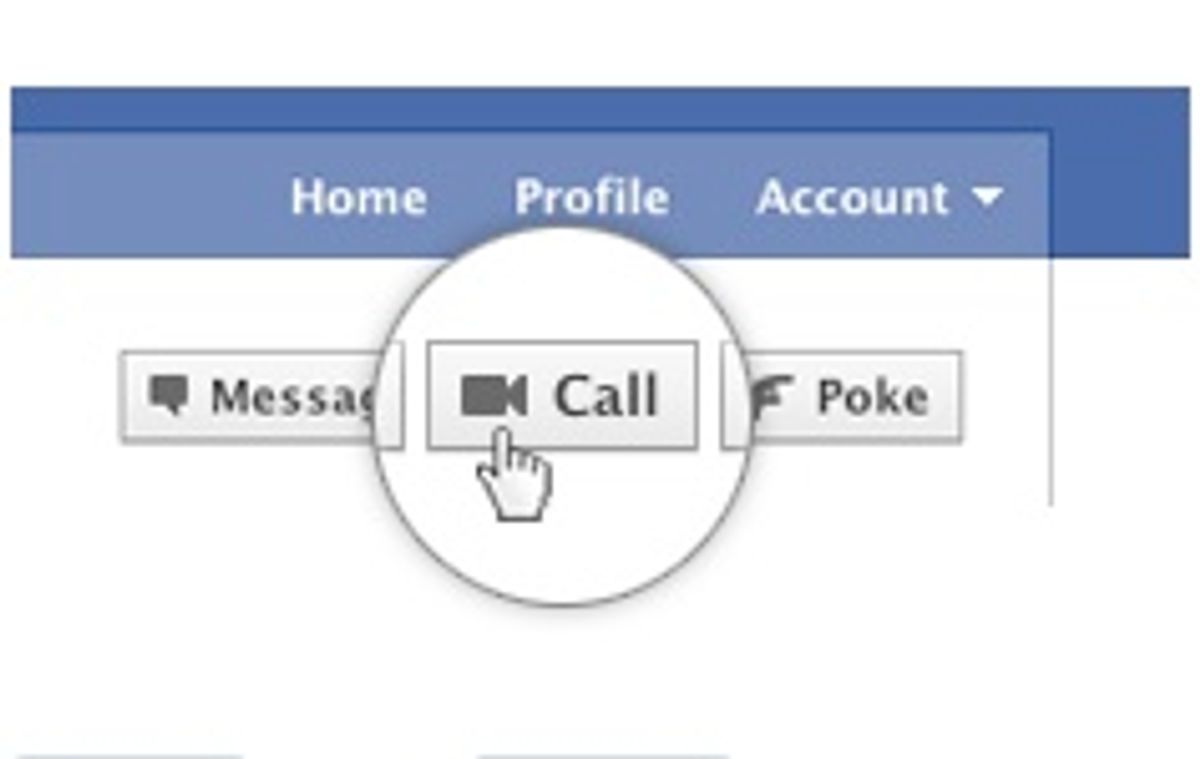Some think we just don’t want folks to see us looking less than our best, or multitasking while talking. That is likely part of the problem, and technology isn’t going to change that.
But even if you are willing, getting going on any of the video calling systems isn’t easy. You have to install software, make sure your call recipients install the same software, and make sure you all have it turned on. It means most calls have to be planned. And that’s a problem the engineers at Facebook decided to solve.
Philip Su, the main Facebook software engineer on the recent Skype integration project, started in late 2010 and first launched to users in July 2011, knew what he was up against. “I tried to get my parents to install Skype for a long time. It was just very painful for them.” Typical installation processes, involving a download, opening the downloaded file, moving the application onto your computer manually or via a wizard, and then setting it up, is cumbersome enough for the computer adept; for less confident computer users it’s intimidating.
Could it be less intimidating? Su thought so. Integrating Skype into Facebook would require users to download and install software—but Su got that process down to, for most users, one or two clicks of the mouse, and has been relieved to see that most people who start the download process actually complete it.
Facebook started rolling its Skype plug-in out in July; it’s now available in the U.S. and in, to date, a number of other countries—Facebook isn’t saying how many, or how many people have installed the plug-in, but Su says the call numbers are higher than expected at this point.
That hasn’t caused a stress on Facebook—or Skype’s—network, Su says. “Our chat system already handles a ridiculous amount of peer-to-peer traffic being routed between machines. The video calling system just rides on top of that.”
There have been glitches. Says Su, “An unnamed country routes every single one of their Internet accesses through one ISP. That’s a massive problem, because when we have users trying to call in or out of that country, the video lags and other bad stuff happens.”
Facebook users, it turns out, typically have less powerful computers and lower bandwidth connections than Skype’s earlier users. This also makes graceful degradation of calls important.
Skype has been tweaking the software so whenever there are bandwidth problems and the video starts falling apart, the audio quality stays high, because, Su says, “the user’s perception of audio glitching is far more sensitive than video glitching.”
They also had to work with Skype to make sure that users are using the shortest path for their calls. Facebook is tracking the routes of calls, and letting Skype know when strategic placement of new nodes would make popular paths a lot shorter.
Will Facebook bring videocalling to the masses? It’s been criticized for lacking the conference call ability native to its newest competitor, Google+, which offers group calling via its Hangouts feature. Su has an answer to that. “Facebook,” he says, “for version one, is very much focused on one-to-one connections between users that may not have even used video calling before. Our first priority is to make sure a typical person and his grandmother could get a video connection within a minute of being friends on Facebook. Nothing technologically precludes group calling for us, but it’s a very distant priority.”
Have you used Facebook’s video calling? Do you have any advice or questions for Su? Let me know in the comments below.
More about Facebook's engineering process here.
Follow me on Twitter @TeklaPerry.
Tekla S. Perry is a senior editor at IEEE Spectrum. Based in Palo Alto, Calif., she's been covering the people, companies, and technology that make Silicon Valley a special place for more than 40 years. An IEEE member, she holds a bachelor's degree in journalism from Michigan State University.




